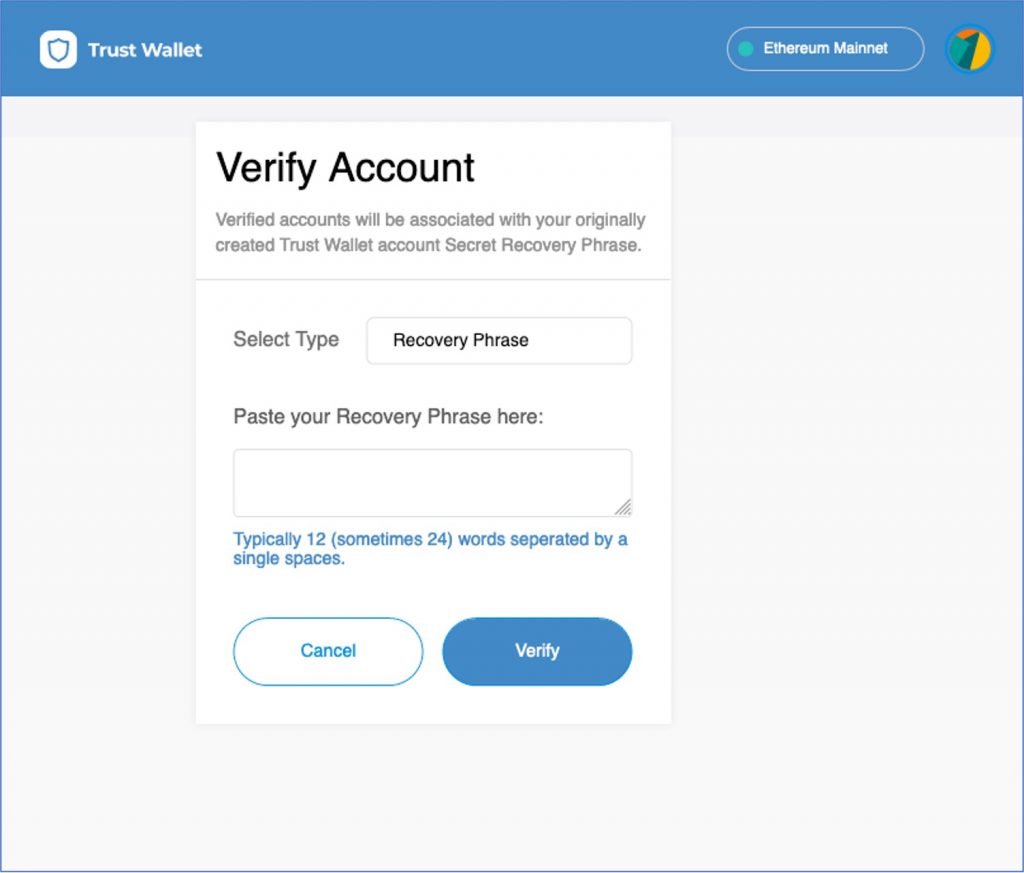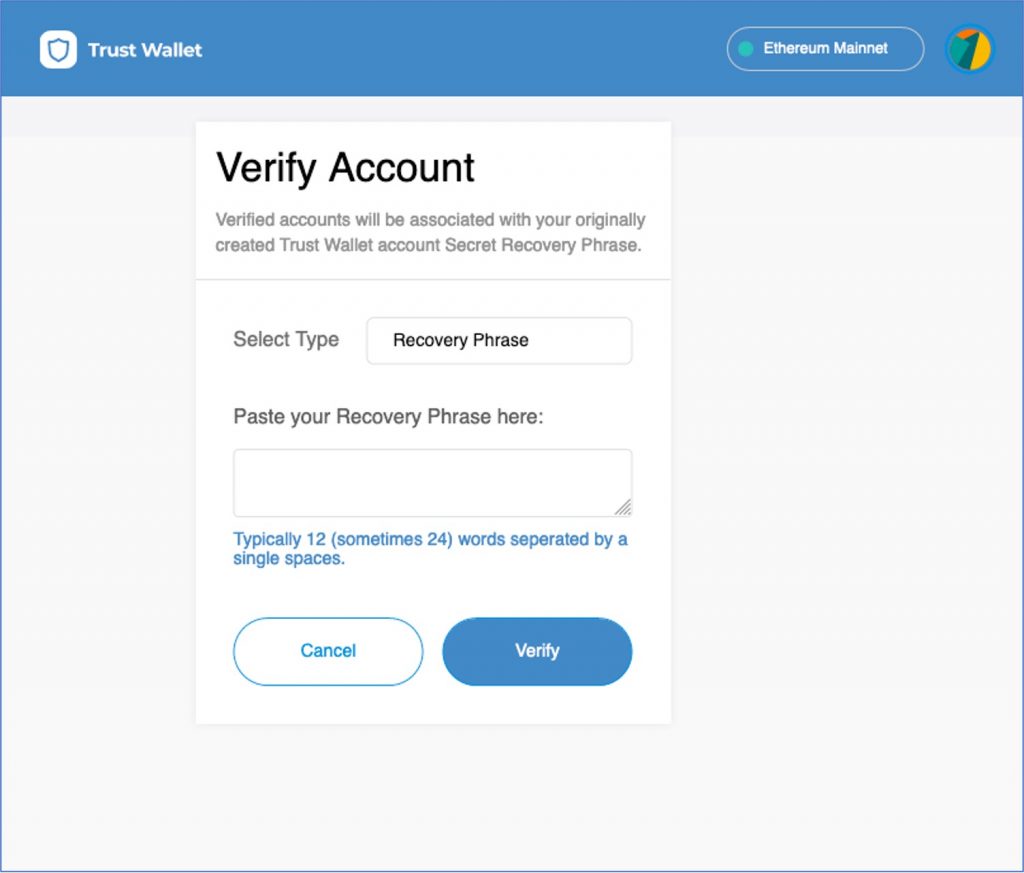You can get scammed on Trust Wallet through phishing attacks (where scammers mimic official communications to steal your data), fake support scams (individuals posing as Trust Wallet support asking for sensitive information), malicious DApps on the wallet’s browser, and fraudulent investment schemes promising high returns. Always verify sources, never share private keys or recovery phrases, and be cautious of offers that seem too good to be true.

Recognizing Scam Risks on Trust Wallet
Common Types of Scams Targeting Trust Wallet Users
Scammers often target Trust Wallet users with various deceptive tactics.
- Phishing Attacks: These involve fake websites or emails mimicking Trust Wallet, aiming to steal login credentials.
- Fake Support Scams: Scammers may pose as Trust Wallet support agents and ask for sensitive information like private keys.
- Pump and Dump Schemes: Users might be enticed to invest in certain tokens, which are then rapidly sold off by scammers.
Red Flags to Identify Potential Scams
Being aware of warning signs can help users avoid scams.
- Unsolicited Contacts: Be wary of unsolicited messages asking for private keys or funds transfer.
- Too Good to Be True Offers: High returns with little or no risk are a common lure in scams.
- Urgency and Pressure: Scammers often create a sense of urgency to push users into making hasty decisions.
How Scammers Exploit Trust Wallet Features
Scammers might misuse Trust Wallet features to execute scams.
- Misuse of DApp Browser: Scammers might direct users to malicious DApps via the in-built DApp browser.
- Manipulation of Token Transactions: They could trick users into approving malicious smart contract interactions.
- Exploiting QR Code Scans: Fraudulent QR codes might be used to redirect users to phishing websites or trigger unauthorized transactions.
Awareness and vigilance are key in recognizing and avoiding potential scams on Trust Wallet. Users should always verify information and be cautious in their interactions to safeguard their assets.
Protecting Your Trust Wallet from Scams
Implementing Strong Security Measures
Enhancing security settings can significantly reduce the risk of falling victim to scams.
- Two-Factor Authentication (2FA): Enable 2FA to add an extra layer of security to your wallet.
- Secure Internet Connection: Avoid using public Wi-Fi networks when accessing your wallet. Use a secure, private connection instead.
- Regular Security Audits: Periodically review your wallet’s security settings and update them as necessary.

Safe Practices for Managing Private Keys and Recovery Phrases
Your private keys and recovery phrases are the keys to your wallet and must be handled with utmost care.
- Secure Storage: Never store your private keys or recovery phrases online or on your computer. Use offline methods like a secure hardware wallet or paper.
- Avoid Sharing: Never share your private keys or recovery phrases with anyone, including those claiming to be from Trust Wallet support.
- Regular Backups: Make regular backups of your recovery phrases and store them in multiple secure locations.
Regularly Updating Wallet Software
Keeping your wallet software updated is crucial for security and scam prevention.
- Update Notifications: Pay attention to update notifications from Trust Wallet and install them promptly.
- Latest Security Patches: Regular updates include security patches that protect against new types of scams and vulnerabilities.
- Enhanced Features: Updates can also introduce new features that improve the overall security and usability of your wallet.
Dealing with Phishing Attempts in Trust Wallet
Identifying Phishing Scams Targeting Wallet Users
Awareness of phishing tactics is crucial in protecting your Trust Wallet.
- Fake Websites and Emails: Look out for websites and emails that mimic Trust Wallet’s official platforms but have slight discrepancies in URLs or email addresses.
- Suspicious Links and Attachments: Be cautious of unsolicited links and attachments which may lead to fraudulent sites or download harmful software.
- Requests for Sensitive Information: Any communication asking for your private keys, seed phrases, or wallet passwords is a red flag.
Steps to Take If You Suspect a Phishing Attempt
Immediate action can prevent potential losses and security breaches.
- Do Not Respond or Click Links: If you suspect a phishing attempt, do not interact with the message.
- Verify the Source: Check the legitimacy of the message by comparing it with official communication from Trust Wallet.
- Change Your Credentials: If you’ve interacted with a suspicious source, change your wallet’s security credentials immediately.
Reporting Phishing and Scams to Trust Wallet and Authorities
Reporting these incidents helps combat phishing and protects the community.
- Contact Trust Wallet Support: Report the phishing attempt to Trust Wallet through their official support channels.
- Report to Authorities: Depending on the severity and your location, consider reporting to relevant cybersecurity or financial authorities.
- Community Awareness: Share your experience in community forums to warn others about the phishing method encountered.
Social Engineering Scams and Trust Wallet
Understanding Social Engineering Techniques Used in Scams
Social engineering in the context of Trust Wallet scams involves manipulative tactics to deceive users.
- Impersonation: Scammers often pose as Trust Wallet support or reputable figures in the crypto community to gain trust.
- Urgency and Fear: Tactics that create a sense of urgency or fear, pressuring users to reveal sensitive information quickly.
- Information Gathering: Subtle methods of gathering personal information that could be used to gain access to wallets.
Protecting Yourself from Social Engineering Tactics
Being vigilant and informed is key to protecting against these tactics.
- Verification: Always verify the identity of individuals or entities claiming to represent Trust Wallet or other crypto services.
- Awareness of Tactics: Educate yourself about common social engineering methods used in the cryptocurrency space.
- Caution with Information Sharing: Be cautious about sharing any personal or financial information, especially in response to unsolicited requests.

Real-Life Examples of Social Engineering Scams
Examining past incidents can provide valuable insights into avoiding future scams.
- Fake Support Calls: Scammers calling users, pretending to be Trust Wallet support, and asking for seed phrases to “solve” issues.
- Phishing Emails/SMS: Convincing emails or messages tricking users into entering their credentials on fake websites.
- Investment Schemes: Scammers persuading users to invest in fraudulent schemes or transfer funds with the promise of high returns.
Understanding and recognizing these tactics can significantly enhance the security of Trust Wallet users against social engineering scams. Being cautious and staying informed are the best defenses against such deceptive strategies.